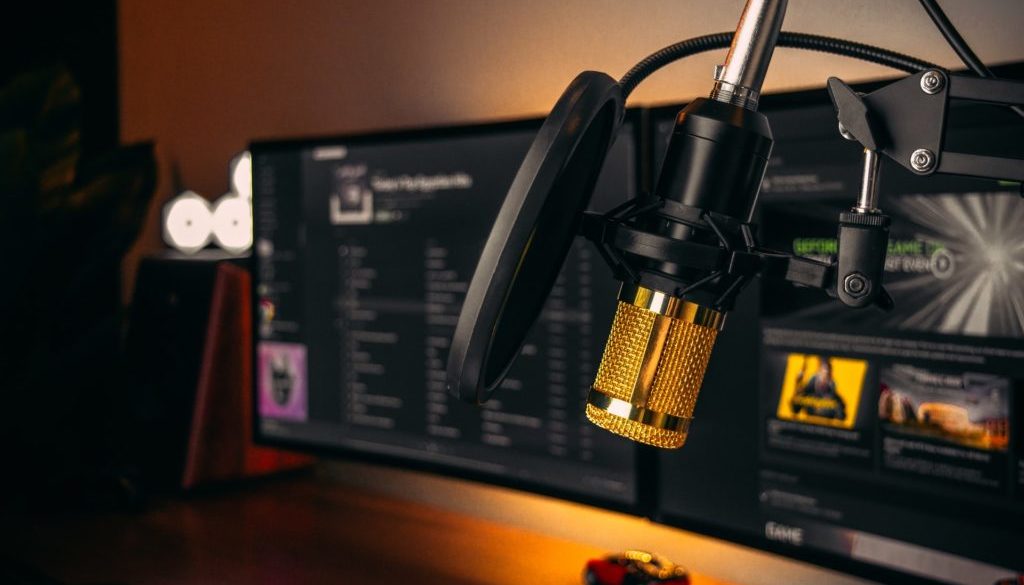Business Podcasting Essentials: 12 Things You Need to Know to Start Your Own
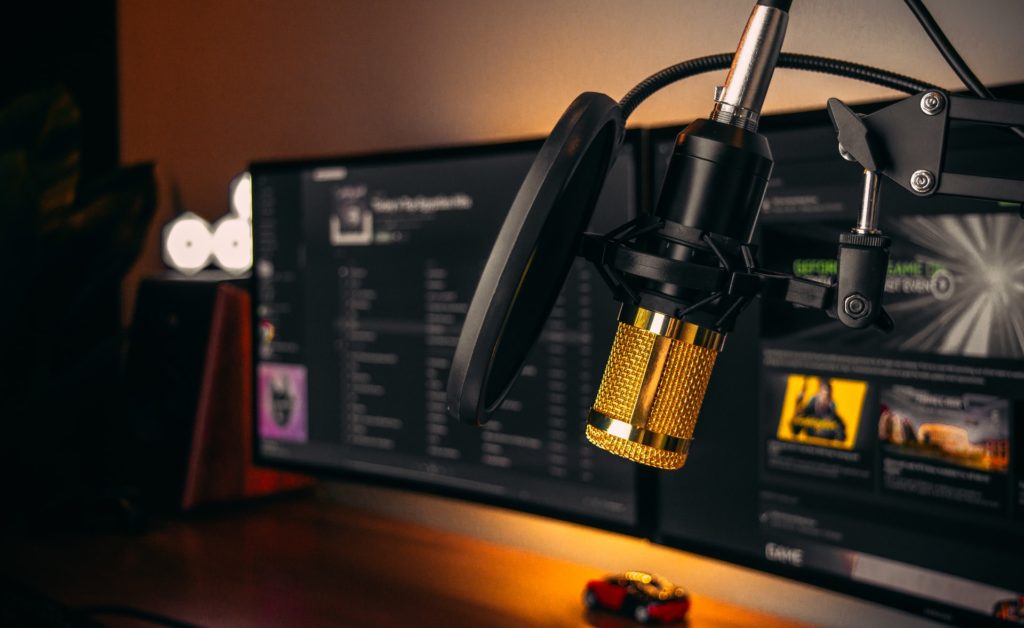
Podcasts are incredibly powerful tools when it comes to marketing your business. They’re one of the most easily-digestible forms of content available, and they’re also incredibly engaging. So, it’s no wonder that nearly 70 million Americans listen to podcasts on a weekly basis.
And, with a few inexpensive tools and software coupled with some basic knowledge, you can leverage that power on behalf of your own business.
Here’s everything you need to know.
1. Themes and Topics

Every podcast needs a goal and a target audience. That’s how you can define the themes and pick episode topics.
Ask yourself these questions:
- What do you want to achieve with your podcast? Visibility for your brand? Sales? Thought leadership? Entertainment?
- Who is your target audience?
- What does your target audience do for work? What industries are they in? What are their roles?
- What questions does your audience have and what challenges to they face?
- How can you answer their questions in an engaging and value-driven way?
You may even want to go so far as creating target market profiles that define who your audience is so you can better tailor your episodes toward them.
Once you know the questions and challenges they face, you can create episodes that answer each specific question in-depth.
2. Podcast Name
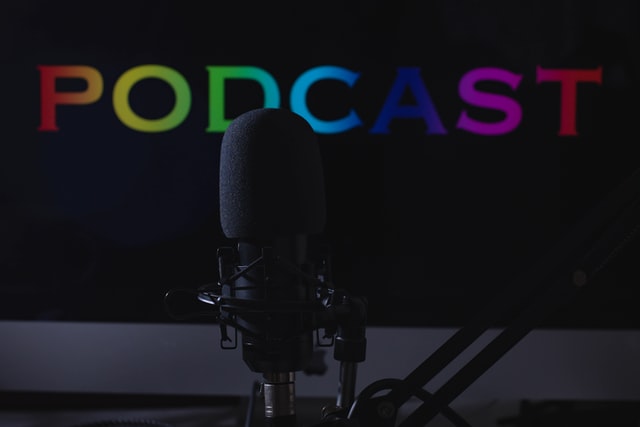
Take your time on this one. It’s a make-or-break aspect of your podcast. We’d recommend something that’s broadly applicable to your theme so that you have a wide array of topics to choose from.
If you’re looking for some inspiration, check out our list of the best business podcasts and consider how and why they chose their names. You may also want to Google the most popular podcasts to see what names they picked as well.
3. Cover Art and Intro Music

Cover art adds a visual element to your podcast and also helps out with branding. It might be worth hiring a graphic designer to help you with this, if you’ve got the resources to do so.
Intro music creates consistency from episode to episode and also contributes to the branding of your podcast. You don’t necessarily need to write and produce yours from scratch. You can just look for royalty-free music services or purchase the rights to a song.
4. Scheduling
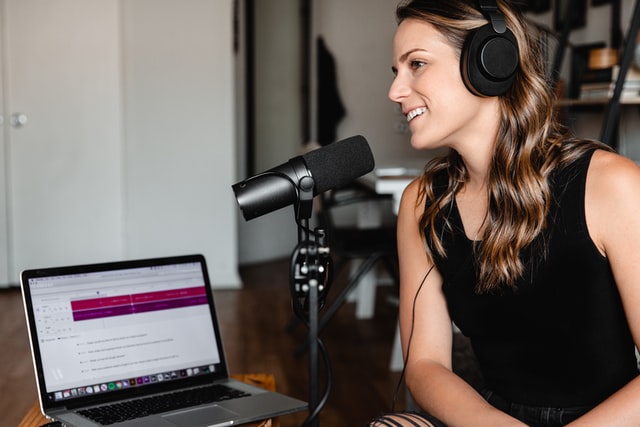
Creating a podcast calendar can help you stay accountable and on track as well as make it easier to stay organized on the status of each episode.
Check out this podcast editorial calendar template so you don’t have to reinvent the wheel.
5. Equipment
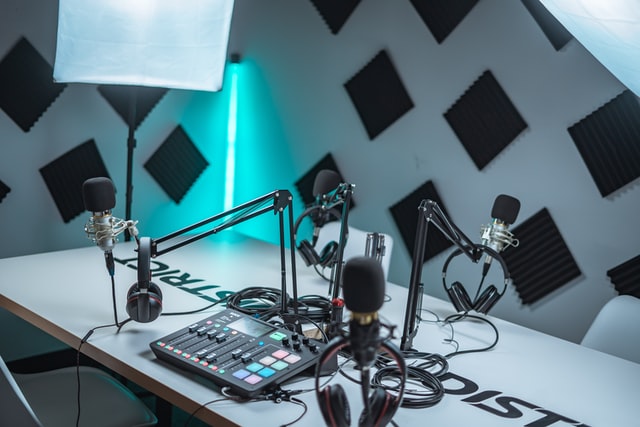
You don’t need a whole ton of equipment to start a podcast, but it’s worth investing in some decent hardware to ensure your podcast sounds professional.
At the very least, start off with a decent microphone, like the Rode NT1KIT package.
It’s also worth ensuring you have some good headphones, like these Audio-Technica studio headphones.
6. Software
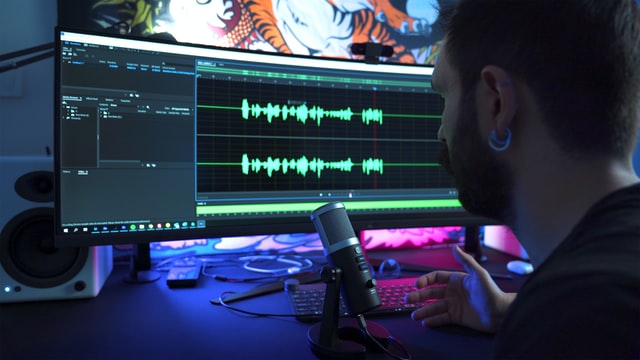
Once you’ve got your equipment, you’ll need to ensure you’ve got the right software to record and edit your audio.
Podcasting can involve some in-depth editing, but it doesn’t necessarily have to. You’ll want to at least get a basic understanding of how to do it, but that shouldn’t be too hard to learn.
This list of the best podcast recording software is a good place to start getting an understanding of the fundamentals.
7. Interviewees
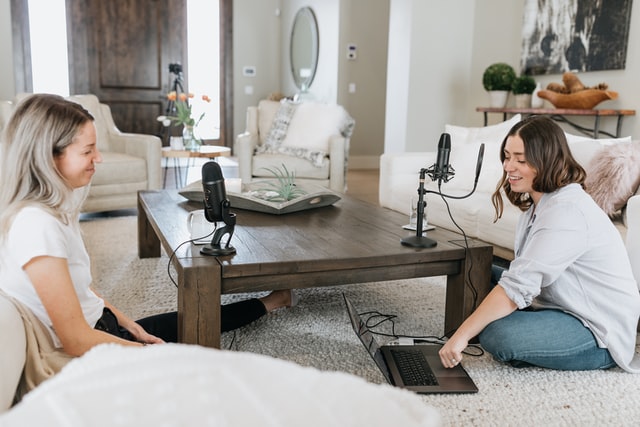
Hosting guests on your podcast isn’t mandatory by any stretch of the imagination, but it can help add a unique and exciting element as well as some added credibility to the listening experience.
If you’re going to invite someone on for an interview, start by picking a topic then researching people who would have something interesting and valuable to contribute and share with your listeners on the topic.
Make sure to get them to promote it to their network before and after the podcast airs as well. This is a great way to gain added visibility for your podcast.
8. Scripts and Questions

Rule number one for podcasting: do not try to wing it. It’ll go off the rails.
It’s great to banter and freestyle a bit, but make sure you’re at least creating a script or outline so that you always have a “center” to come back to.
Intros and conclusions are especially important as they set the tone for the podcast then drive home and reiterate the value.
And most definitely don’t try to wing it with interviews. Always do your research and formulate questions in advance.
9. Editing

We talked a bit about editing software, but we should also mention editing best practices.
The audio you record will almost certainly have pieces you’d like to edit out. So, start by listening to it and taking note of the timestamps of pieces you’d like to remove.
If this seems daunting, check out this comprehensive show editor’s checklist that can help give you some guidance and structure for the process.
And remember: when you’re editing, it’s important that you don’t edit out anything that could change the context of a statement, especially when it’s being made by a guest.
10. Hosting

One of the most important steps in this entire process is creating a channel (or channels) where you can host your podcasts.
The biggest and best-known ones include Spotify and Apple Podcasts, but you can also leverage SoundCloud and a number of others.
As much as it’s vital to have your podcast on the major streaming platforms, it’s only important to have it online on a domain of your own as well. This could be a page on your existing website, or even purchasing the domain associated with the name of your podcast. Either way, just make sure it’s available on a platform you own as well. There are a ton of tools you can use to embed your podcast onto your website.
11. Post-Production
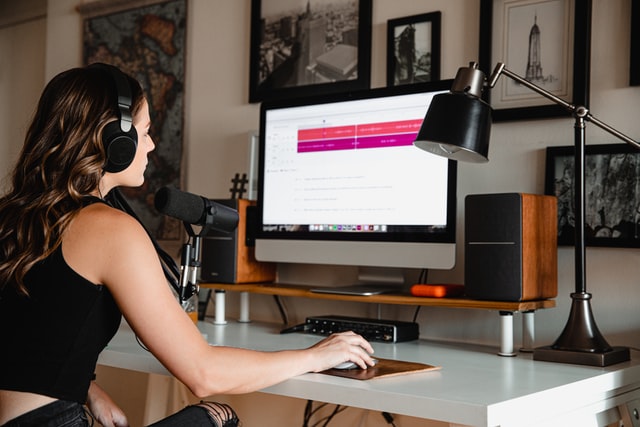
It’s wise to get transcriptions created for your podcasts because it helps search engines to “read” your episodes and help them rank and be searchable. We’d defer to Fiverr again for some inexpensive transcription services. You may have to edit them a bit, but it won’t cost you much.
You should also include show notes that summarize what the episode is about and includes and links, resources, or references.
12. Promotion

Don’t just upload your podcast and hope for the best. Create a promotion strategy. This can include:
- Sharing it on your social media
- Promoting it by email
- Submitting it to podcast directories
- Asking people to subscribe or share
- Sharing testimonials or reviews
- Taking guest opportunities on other podcasts
The opportunities to promote your podcast are nearly endless but it’s the key to growing your audience and getting it listened to.
Creating a podcast takes a lot of work but, when done right, it’s absolutely worth the effort. The key is to get yourself set up with the right strategies and tools and then to simply get started.
Looking for a professional workspace in one of the most unique neighborhoods in Baltimore? Get in touch today.
